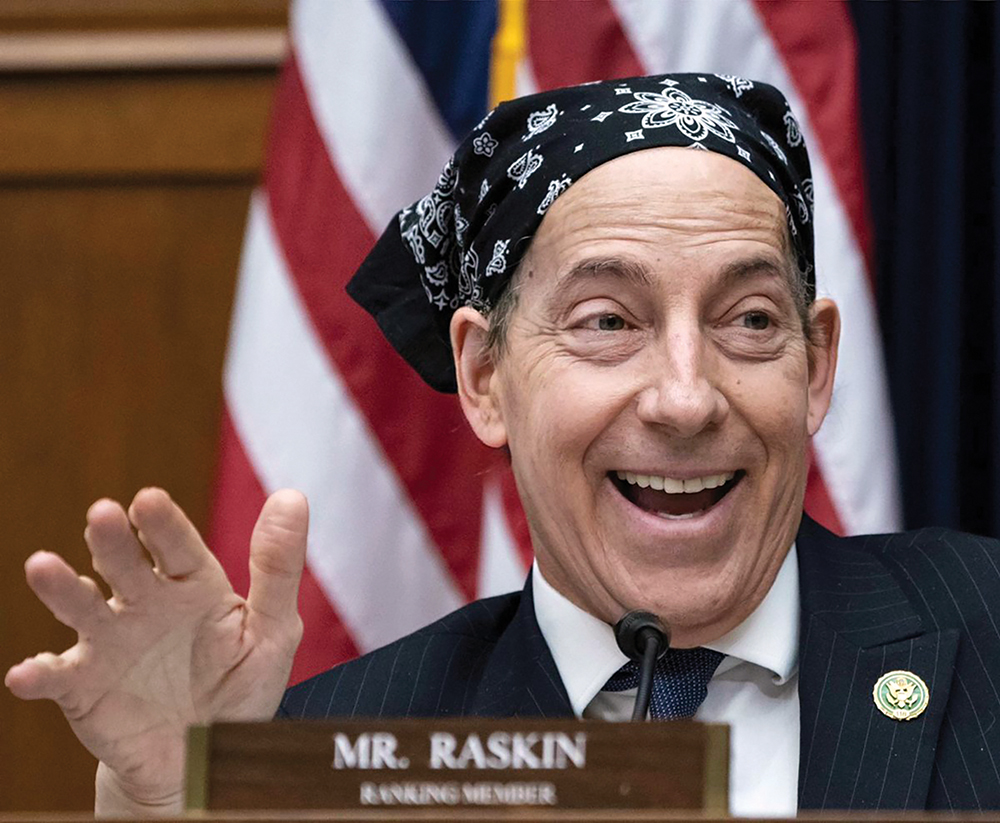I wrote a column in late January called “Daze of Christmas Past,” in which I recounted how I got diagnosed with cancer — large B-cell non-Hodgkins lymphoma — a couple weeks before Christmas. It was a really not-fun holiday surprise. As a bonus, since the tumor was attached to the front of my spinal column, I had to undergo a reconstruction of my upper spine to stabilize it prior to cancer treatment.
By the time I got home from the hospital, on Christmas Day, no less, I was stiff, sore, using a walker, and breathing from an oxygen tank at night. I felt like I was 95 years old. It will get better, the doctor said. Be patient. Or a patient. I can’t remember which. I didn’t move around much for a couple of weeks, but I began keeping a daily journal that I cleverly called “Cancer Diary.” I was scheduled to begin chemotherapy in late January. The odds of a cure, they told me, were 70 percent. Not so bad.
I watched on television as Congressman Jamie Raskin announced that he’d been diagnosed with the same cancer I had. He was about a month ahead of me in treatment, it appeared, so I decided to keep an eye on his progress. He was wearing a kerchief to cover his newly bald head — not a great look.
I read a lot about various natural cancer-fighting foods and decided to begin each day with a bowl of Cheerios and fresh berries, and with liquid mushroom extracts — lion’s mane, turkey tail, and reishi — on the highly scientific theory that it couldn’t hurt.
On January 24th, I began the first of six chemo treatments — one every three weeks — at West Clinic in Midtown. After I arrived and had some blood taken, I was escorted into the chemo area, a large room with 20 or so matching reclining chairs, each next to a rolling stand holding medical drip bags. There was a wall of windows facing Union Avenue, the cars filled with people who, like me, had probably never noticed this building or had any idea what happened inside. A Wendy’s was across the street.
I was taking the “R-CHOP” protocol, a well-established treatment for large B-cell lymphoma. It’s a regimen of cyclophosphamide, doxorubicin, prednisone, rituximab, and vincristine. So there. Mmmm.
The process began with three 40-minute drips: Tylenol, Benadryl, and an anti-nausea medication. The heavy stuff was to come a couple hours later. I was to be there “all day,” the nurse said. Two of my fellow drippees chattered ceaselessly on their phones. Others slept or listened to music through headphones. I guessed they were old hands at this. Six hours later, and I was no longer a chemo virgin.
Thus began the next five months of my life. I never had the horrible reactions to chemo that many people get — headaches, nausea, and other gastric thrills — but I got three or four days of extreme fatigue about halfway through each three-week cycle. My hair fell out in mid-February. I tried wearing various theoretically cool-looking toppers but decided finally to just roll with a chrome dome. Once my facial hair was gone, my head looked like a thumb.
I started writing my column again in late January and only missed a couple of weeks. I read voraciously on the Kindle my son bought me. It’s light and easy to hold in bed. My mother-in-law came from Spain to stay with us and help out until I “got better,” and she was a delight.
I had a couple of setbacks that led to visits to the ER and hospital stays, but I weathered the storms. The scans I took showed the tumor was shrinking — from an egg, to a walnut, to a grape, over the course of three months. Then, in late April, Congressman Raskin announced that “chemotherapy has extinguished the cancer cells.” I took this as a good sign. In the meantime, I was starting to feel pretty “normal.”
After my last chemo on June 5th, I got another PET scan. Three days later I got an email from my oncologist. “Scan showed remission,” it said. “More details when we meet.” Details, schmetails. I still have some follow-up treatments to get through, but apparently “chemotherapy has extinguished the cancer cells,” and I count myself a lucky man.

